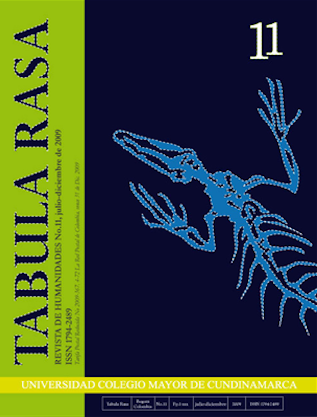Hegel in America
Hegel en América
Show authors biography
This article reinterprets Hegel and his vision of history from the global south. The writing places Hegel's Philosophy of History lessons in the context of European colonial expansion to the Americas in 1492 and the rise of the American empire from 1898 to today. The article develops a critique of the Hegelian vision of the future and provincializes Hegelianism by removing it from the narrative of universal history and placing it in the history of Western imperialisms, the article makes a reading of Hegel against Hegel himself as a thinker of non-identity, of the otherness. The singularity as a category that denies both the general and the particular is defended against a certain reading about Hegel that thinks of the concept as the subsumption of the particular in general. The article makes a reading of the novel by José Revueltas Los Errors as a precedent for the questions that Alain Badiou asked himself 40 years later. He ends up defending a communism of the left.
Article visits 66 | PDF visits 57




